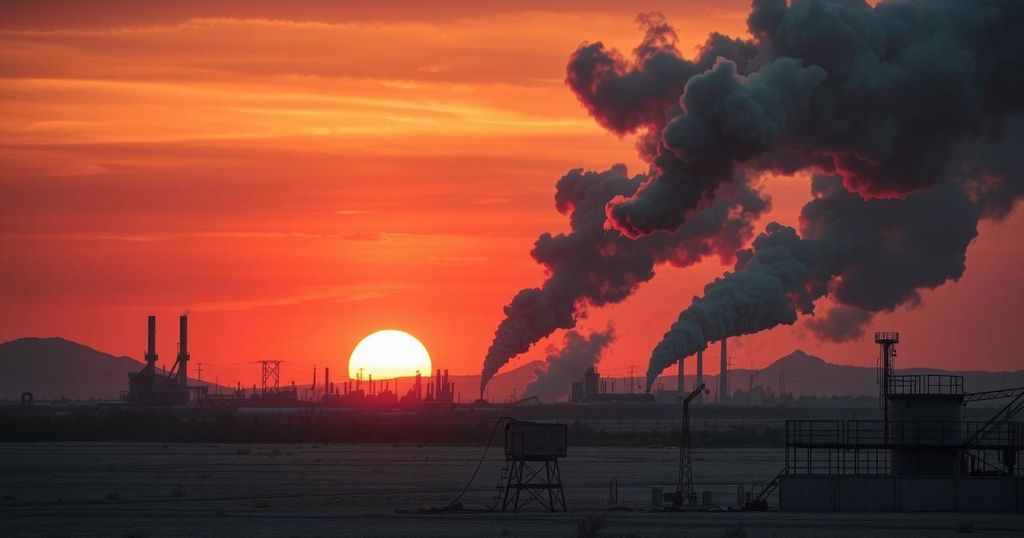Hostilities in Sudan Ignite Fires at Largest Oil Refinery Amid Civil War

Recent satellite imagery reveals that fighting near Sudan’s largest oil refinery has led to widespread fires. Forces loyal to Gen. Abdel-Fattah Burhan claim control of the facility amid ongoing conflict with the RSF, who have previously managed the refinery. The situation has severe economic and humanitarian implications, worsening the existing crises in Sudan and South Sudan.
Fighting around Sudan’s largest oil refinery has ignited significant portions of the facility, revealed by satellite data analyzed by the Associated Press. The complex, located approximately 60 kilometers north of Khartoum, is reported to have been captured by forces loyal to Army Chief Gen. Abdel-Fattah Burhan amidst their ongoing conflict with the rebel group, the Rapid Support Force (RSF). Part of this struggle involves various attempts at international mediation that have been largely ineffective in curtailing hostilities.
Previously under RSF control since April 2023, the refinery experienced an extensive fire due to a recent attack on Thursday. Satellite imagery confirmed that fires spread throughout the facility, generating thick plumes of black smoke, which have health implications for nearby populations. The RSF alleged that the military was responsible for the destruction, while the military has blamed the RSF.
Further complicating the situation, videos surfaced showing Burhan’s forces asserting their entrance into the refinery premises amid the sound of gunfire. The situation remains fluid as both sides claim operational control. Brig. Gen. Nabil Abdallah stated that the military had successfully taken over the refinery, but the RSF did not contest this assertion immediately.
China, previously Sudan’s largest trading partner, has not publicly commented on the fire despite its vested interests in the region’s oil. The ongoing conflict is jeopardizing the stability of both Sudan and South Sudan’s economies, as the destruction of the refinery would significantly hinder local fuel supplies. Analysts warn this could trigger further economic hardship for the Sudanese population.
The civil unrest in Sudan, which ignited following the ousting of dictator Omar al-Bashir in 2019, has escalated since military leaders collaborated in a coup in 2021. The current conflict has already led to significant casualties, displacement, and severe humanitarian crises, including famine. The U.N. has expressed concern over the escalating violence, particularly highlighting the environmental and economic consequences of the ongoing war.
The civil war in Sudan has been fueled by a struggle for power between the military led by Gen. Abdel-Fattah Burhan and the Rapid Support Force (RSF). The conflict intensified after a military coup was executed in 2021, following a brief period of democratic transition. The instability has further deteriorated the country’s infrastructure, with armed conflicts disrupting essential services and leading to humanitarian crises characterized by mass displacement and severe food shortages.
The volatile situation surrounding Sudan’s largest oil refinery exemplifies the broader chaos resulting from the ongoing civil war between government forces and the RSF. The conflicting allegations of responsibility for the refinery’s destruction highlight the severity of the discord. With escalating violence and humanitarian distress, the potential loss of this critical infrastructure threatens not only Sudan’s economy but also regional stability amidst international diplomacy efforts.
Original Source: www.cnn.com








